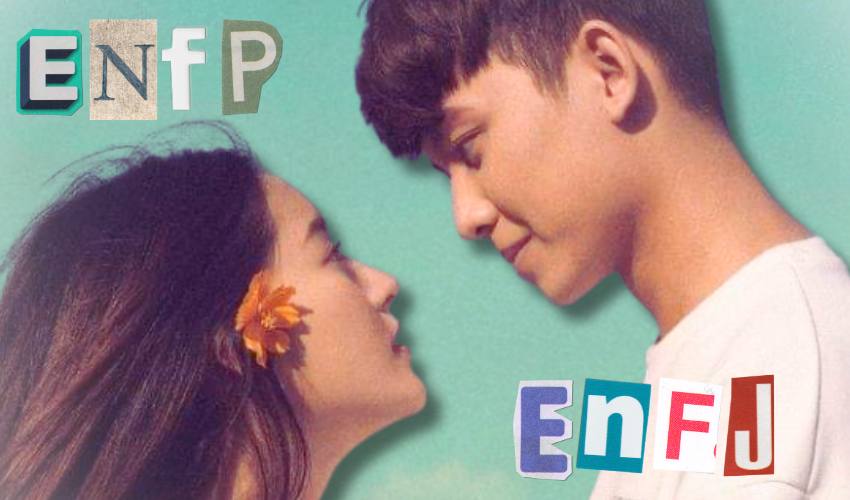Everyone loves to hear about their best qualities and let the bad stuff get swept under the rug. However, one of the gifts of cognitive theory and the MBTI is the insight it offers about our deficiencies and short comings. Being mindful and aware of our weaknesses makes it easier to hone in on and develop them. Here is a list of the worst traits of each of the Myers-Briggs types.
INTP
- Represses and ignores feelings
- Temperamental outbursts (due to buried emotions)
- Aloof and intellectually conceited
- Emotionally unavailable
- Unexpressive of feelings
- Tendency to be suspicious and distrusting of others
- Not naturally good with practical, day-to-day matters
- Tendency to have difficulty leaving unhealthy relationships
- Tend to either ignore conflict situations or blow up in heated anger in response to them
- Hate working on routine tasks
- May be prone towards social rebellion
- May be prone to feelings of over self-importance
- May become overly critical, sarcastic and cynical
- May need to work on expressing their well-developed theories in a way that is understandable to others
ISTJ
- Can be know-it-alls
- Tendency to be extremely judgmental
- Can be cheap/stingy
- Not naturally in tune with other peoples’ feelings
- Can seem overly rigid to others
- May not give enough praise and affirmation to loved ones
- May feel uncomfortable verbally expressing affection and emotion to others – prefer to do so through actions rather than words
- Tend to not give themselves or others enough credit for achievements
ESTJ
- Can be extremely judgmental
- Can be stubborn, inflexible, unreasonable, and overly rigid
- Can be materialistic
- Tend to believe they’re always right
- Tendency to be bossy
- May be easily agitated
- Impatient with sloppiness and inefficiency
- Not naturally in tune with the feelings of others
- May have trouble expressing their own feelings
- Can be insensitive and inadvertently hurt others
- Uncomfortable with change
- Have zero patience and no tolerance for those who do not share their values/beliefs
- Can be very demanding and critical
ISFJ
- Tendency to leave feelings unexpressed, causing pent-up frustration to build up inside
- Prone to struggle with insecurity, are often too hard on themselves
- Tend to neglect their own needs
- May have a hard time branching out to new territory
- Intensely dislike conflict and criticism
- Have a hard time leaving an unhealthy relationship
- Have a hard time moving on after the end of a relationship
- Tendency to place others’ needs above their own
- May have a hard time saying “no”
- Need positive feedback and may become discouraged or depressed if they do not receive it
ESFJ
- May be prone to struggle with insecurity stemming from their strong desire to be liked
- Tendency to need lots of positive affirmation in order to feel good about themselves
- Strongly dislikes criticism and conflict – can be overly sensitive
- Can be manipulative, passive-aggressive and controlling
- Tendency to partake in gossip
- May fall into trap of being a “guilt tripper”
- Can fall into trap of putting themselves in the “victim” role
- Can be overly status-conscious and too concerned with what others think of them
- Can be dramatic
- Tendency to dislike change
- May have a hard time accepting the end of a relationship
- Has a hard time accepting/acknowledging difficult truths about those close to them
- May neglect their own needs and be overly self-sacrificing
- Do not naturally possess a strong internal moral code – morals are largely defined externally by their community/surroundings, so it is especially important that ESFJs are raised within/surrounded by a strong value system
- Their respect for rule of law/authority/tradition may cause them to blindly accept rules without questioning or understanding them
ISTP
- Can be secretive/distant/closed-off
- Prone to outbursts of anger when over-stressed
- Don’t always know how to express feelings, doesn’t come naturally
- May avoid and ignore problems
- Tend to have difficulty with long-term commitments
- Tendency to hold back part of themselves and be overly private
- Intensely dislike having personal space invaded, tending to need lots of it
- May intentionally stir things up to create the excitement they long for
- Tend to get bored easily
- Are often rule-breakers– do not necessarily respect or abide by the rules of the “system” (can be positive and negative)
- Not naturally in tune with how they affect others
- Tendency to believe judgments should be made impartially and based on fact alone may lead them to ignore and even distrust their feelings
- Tend to have difficulty distinguishing between their emotional reactions and value judgments
ESTP
- Can be insensitive
- May not realize or even care about the effect their words have on others
- Not naturally in tune with the feelings of others
- Can be bossy
- Can be somewhat unscrupulous when it comes to getting what they want
- Not naturally good at expressing their feelings
- Not good at long-range planning and tend to dislike long-term commitments
- May fall into trap of ignoring, rather solving their problems
- May get bored easily
- May abandon relationships quickly once/if they become bored
- Tend to be risk-takers (can be both positive and negative)
- Even if highly intelligent, school tends to be a grueling chore for them
- Though great at getting things started, they often struggle with following through
ESFP
- Tendency towards immaturity
- May become overly indulgent and overlook long-term consequences of actions
- Can be reckless/frivolous with money
- Can be impulsive
- Tendency to be over-dramatic
- Can be neglectful of their health and wellbeing
- May be materialistic
- Often do not handle criticism well – tendency to take things very personally
- Long-term commitments may be a struggle for them
- Tendency to ignore or try to escape from conflict rather than deal with it
- Often do not pay adequate attention to their own needs
- Always excited by something new and may frequently change partners
- Not the best advice givers due to their dislike of future planning
- Usually hate structure and routine (can be positive or negative)
ISFP
- Tend to hold back feelings and thoughts
- May not be good with long-term planning
- Intensely dislike criticism and conflict
- May come off as lazy/slow-moving to others
- May be uncomfortable verbally expressing affection
- Can be hard to get to know well
- Tend to be too hard on themselves and not give themselves enough credit
- Because they tend to take life so seriously, it may not be easy for them
ENTJ
- Can be challenging, confrontational, argumentative, and intimidating
- Very high standards and expectations (both positive and negative)
- May have a hard time listening to others
- May be intolerant/highly critical of opinions that don’t match their own
- Not naturally in tune with the feelings and reactions of others
- Not naturally good with expressing love/affection and may seem awkward/inappropriate while doing so
- Can be a “control-freak,” always wanting to be in charge
- Can be harsh, especially when it comes to messiness/inefficiency
- Can fall into trap of becoming overbearing
- May be slow to praise others or recognize another’s need for praise
- May have explosive tempers when under stress
- Can make hasty decisions at times
- Tend to be impatient
- Have difficulty putting themselves in another’s shoes
INTJ
- Not naturally in tune with the feelings of others, can be insensitive
- My be overly logical when responding to situations that require emotional support
- Expressing feelings and affections does not tend to come naturally to them
- Can be know-it-alls, believing they are always right
- Likely to have trouble accepting blame
- Continual quest to improve everything can be strenuous on personal relationships
- Tendency to hold back part of themselves
- Because of the non-linear nature of their ideas, they often have difficulty explaining themselves to others
- May often find themselves misunderstood and tend to blame others because of it rather than evaluate their own difficulty expressing themselves
- May have little interest in others’ thoughts/feelings and dismiss others’ input too quickly
- May have difficulty giving others the level of intimacy they need
- May overlook details
- Often quick to judge and express judgments
- When frustrated, can become/come across as arrogant, elitist
- May appear aloof, reserved and rigid to others who don’t know them well
- If they do not learn ways to express themselves efficiently, out of frustration, they may become isolationists who are short with others
ENTP
- Can be insensitive and unintentionally hurt others’ feelings
- Can be impulsive
- Tend to jump from one idea/plan to another, but many times will not finish what they start
- Can fall into trap of becoming egotistical and overly self-absorbed
- Doesn’t always think things through sufficiently before acting/speaking
- Often not good with managing money – tendency to be big spenders and risk-takers
- May change partners often as they are always excited by something new
- May provoke arguments due to their love for debating
- May fall into trap of becoming overly logical and overlooking the subjective, personal side of things, which could result in them coming across as unethical/uncaring/dishonest to others
- Tendency to overlook/ignore details
ENFJ
- Can be smothering and over-protective
- Can be controlling/manipulative
- Often do not pay enough attention to their own needs – put others’ needs above their own
- Often critical of ideas/opinions that don’t match their own
- May be out-of-touch with what is socially appropriate
- Highly sensitive to and avoidant of conflict – tendency to “sweep things under the rug”
- Tend to blame themselves when things go wrong and not give themselves enough credit when things go right
- Can be unbending and stubborn in some areas
- Tendency to strongly dislike, fear and avoid being alone – may turn to dark, self-deprecating thoughts when by themselves
- Tendency to be chameleon-like in their interactions with others (can be positive and negative)
- Likely to sacrifice personal values if they come in conflict with serving another’s need
- Prone to feeling lonely even when surrounded by others because of their tendency to conceal their true selves
- Can be fussy – tendency to be “neat freaks”
- Dislike impersonal, logic-based reasoning (can be positive and negative)
- May be a worrier
- Prone to being overly-sensitive, especially to criticism
INFJ
- Tend to hold back part of themselves – can be secretive
- Are often hard to get to know, difficult to understand
- May not be good with money
- Often not good with handling practical, day-to-day concerns
- Tendency to believe they’re always right and dismiss/ignore other peoples’ opinions, even before fully hearing them out
- May be prone to depression
- Intensely dislike criticism and conflict – tend to internalize conflict and may react to it with heated, explosive anger
- May have a hard time leaving an unhealthy relationship
- May be highly protective of themselves and overly private, only sharing what they want and when they want to share it
- Can be stubborn
- Rarely at complete peace with themselves – always doubt they are living up to their full potential
- Often not good with highly detailed tasks – will either avoid these tasks or go to other extreme and become so enveloped in detail that they lose sight of big picture
ENFP
- Tend to occasionally make serious errors in judgment – when they apply their less developed judgment to their highly develop intuitions, they may jump to the wrong conclusion
- Can, at times, be overly anxious and worrisome
- Tend to get bored easily
- Can be impulsive
- Prone to hold onto bad relationships for far too long
- Their enthusiasm may cause them to be unrealistic
- Not good with or interested in dealing with mundane daily tasks such as paying bills, cleaning, etc.
- Strongly dislike conflict and criticism
- May not pay enough attention to their own needs
- Continual search for the “perfect relationship” may cause them to change partners frequently
- May (falsely) come off as directionless wanderers to onlookers
- Tendency to not follow through on projects, usually because they get excited about a new project and abandon the first for the second – this may become a problematic cycle
- May be overly concerned with being liked
- Not good with detailed-related tasks
- Always seeing the possibility of what could be often causes them become bored with what actually is
INFP
- May have difficulty leaving an unhealthy relationship
- May be prone to struggle with insecurity
- Strongly dislike having their space invaded
- Needs praise and positive affirmation from others
- When stressed, may be prone to emotional outbursts
- Often reserved about expressing feelings and may be awkward and uncomfortable while doing so
- Don’t give themselves enough credit when things go well and blame themselves entirely when things go wrong – often very hard on themselves
- Intensely dislike conflict and criticism
- If forced to deal with conflict, they are more focused on the way things makes them feel than with what is right and wrong – don’t care if they’re “wrong,” they simply do not want to feel badly
- Can appear to be irrational and illogical, especially in conflict situations
- Dislike having to deal with hard facts and logic – do not value and are ineffective at using impersonal, objective judgment (can be positive and negative)
- In group situations, may have a “control” problem where they want to take over everything because group members’ standards often aren’t as high as theirs
related posts:
- The Cognitive Blind Spots of Each MBTI Type
- What Drives You In Life Based On MBTI Type
- The MBTI Types of Game of Thrones Characters
- How Competitive You Are Based on MBTI Type
- The First Impression Others Have of You Based on MBTI Type
- What Each MBTI Type Will Do When The Robots Takeover
- The Hypocrisy of Each MBTI Type
source: Myers-Briggs Personality Types | tumblr
Latest posts by Jetta Moon (see all)
- ISFJ and ISTJ in love: 5 Essential Dynamics of their Relationship - February 24, 2024
- ENTP and ENTJ in love: 6 Critical Dynamics of Their Relationship. - February 18, 2024
- ESTJ and ESFJ in love: 4 Key Aspects of their Relationship. - February 12, 2024






One thought on “Worst Traits Of Each Myers Briggs Type”